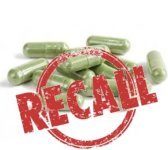Researchers at the University Of Southern California Viterbi School Of Engineering studied the development of traces of antibiotic resistance DNA in wastewater treatment. The water from these facilities is reintroduced to the environment, causing the spread of antibiotic resistance. The research found that even low concentrations of just a single type of antibiotic lead to resistance to multiple classes of antibiotics. They believe that water treatment facilities can be a hot-bed for antibiotic resistance. One of the common ways in which the wastewater is treated is with a membrane bioreactor, which uses both a filtration system and a biological process where bacteria consume waste products. The bacteria encounter antibiotics in the wastewater and expresses resistance genes. These resistance genes can then be passed on from parent to daughter cell and between neighbors through horizontal gene transfer. The biomass containing these bacteria is disposed of in landfills or used as a fertilizer for agriculture and livestock feed crops. The antibiotic-resistant bacteria and free-floating DNA come out in the effluent that leaves the facility and is often used for irrigation, or to replenish groundwater supplied, a common source of drinking water. The team believes that the amount of antibiotic-resistant organisms formed in treatment plants could be reduced by employing anaerobic, processes rather than aerobic processes. The University of Southern California. “Antibiotic resistance is spreading from wastewater treatment plants.” ScienceDaily. ScienceDaily, 6 March 2019. @ https://www.sciencedaily.com/releases/2019/03/190306125330.htm
ruth
The products of wastewater treatment have been found to contain trace amounts of antibiotic resistant DNA. Researchers have found that even low concentrations of just a single type of antibiotic in the water supply leads to resistance to multiple classes of antibiotics.
ruth
CDC reports claim that from 2005 to 2013, the rates of methicillin-resistant Staphylococcus aureus (MRSA) bloodstream infections declined on average 17.1% every year. However, CDC reports that this decline stopped and the rate reached a plateau. “Staph infections are a serious threat and can be deadly,” CDC Director Dr. Robert Redfield said in a news release. “U.S. hospitals have made significant progress, but this report tells us that all staph infections must remain a prevention priority for healthcare providers.” According to the report, the rates of decline for MRSA diagnosis in communities across the country are even smaller: 6.9% annually from 2005 to 2016. The authors of the report suggest that the increase in staph infections in the community might be linked to the nation’s opioid crisis.@ https://amp.cnn.com/cnn/2019/03/05/health/staph-infections-cdc/index.html
More than 119,000 people were diagnosed with bloodstream Staphylococcus aureus infections in the United States in 2017, and almost 20,000 died — a significant slowing in the previously declining rates of infections with the bacteria.
ruth
The Department of Health and Human Services said that the FDA chief Scott Gottlieb announced his planned resignation, and plans to step down in one month. Gottlieb won bipartisan support for his efforts to curb the use of flavored e-cigarettes by youths, speed approval times for cheap generic medicines to increase competition and bring down prescription drug prices and boost the use of cheaper versions of expensive biotech medicines, called biosimilars. Health and Human Services (HHS) Secretary Alex Azar said in a statement that “Scott’s leadership inspired historic results which delivered record approvals of both innovative treatments and affordable generic drugs while advancing important policies to confront opioid addiction, tobacco, and youth e-cigarette use,” @ https://www.reuters.com/article/us-usa-fda-gottlieb/fda-chief-gottlieb-resigning-idUSKCN1QM2GZ?feedType=RSS&feedName=newsOne
U.S. Food and Drug Administration chief Scott Gottlieb announced his planned res…
ruth
Sunstone Organics recalled two lots of Sunstone Organics Kratom because the products have been found to potentially be contaminated with salmonella. Sunstone Organics has not received a report of adverse reaction to the products. The products are used as a tea or supplement and are packaged in kraft stand-up pouches in both capsule form and powder form, in 3 different size bags, for a total of 12 products. These products were distributed to retail outlets in Oregon, Washington, California, and Nebraska.@ https://www.fda.gov/Safety/Recalls/ucm632554.htm
Springfield, OR, Sunstone Organics is voluntarily recalling two lots of Sunstone Organics Kratom. These two lots include Sunstone Organics White Vein Kratom Lot 119 and Sunstone Organics Maeng Da Kratom Lot 124A in both capsules and powder form and in all sizes. The products have been found to potentially be contaminated with salmonella.


